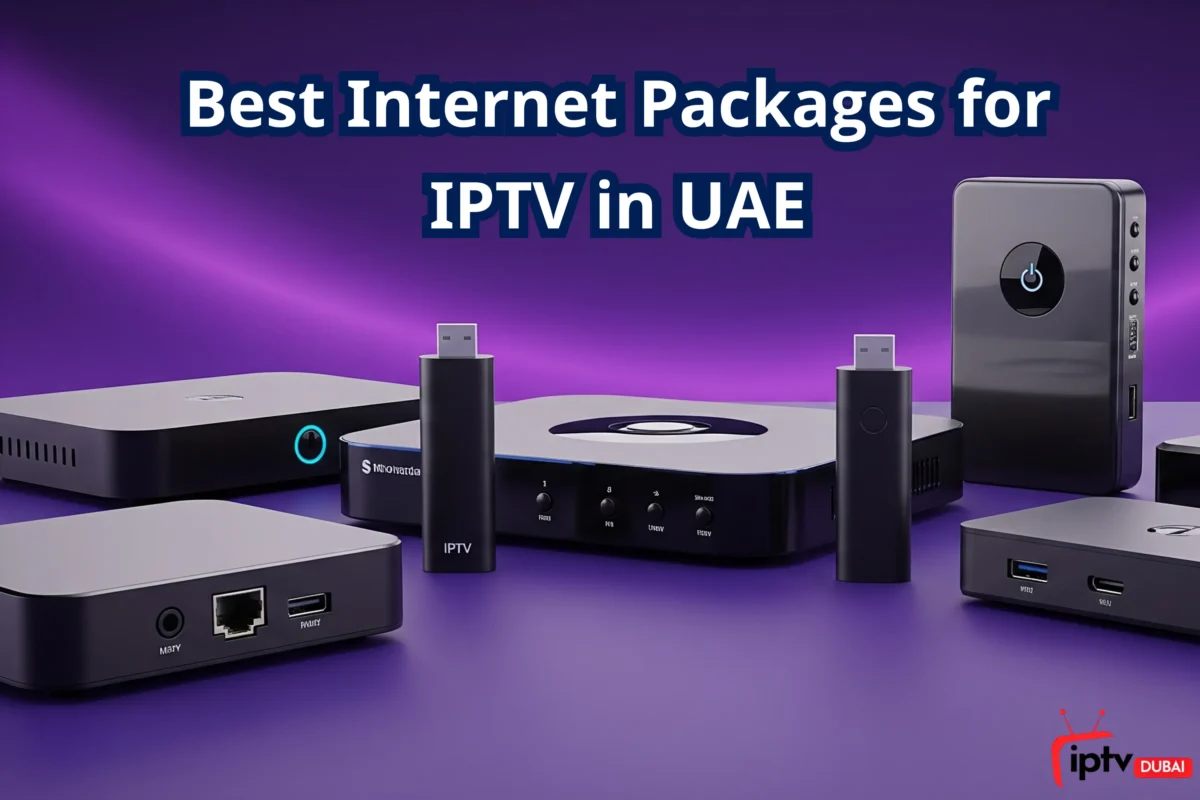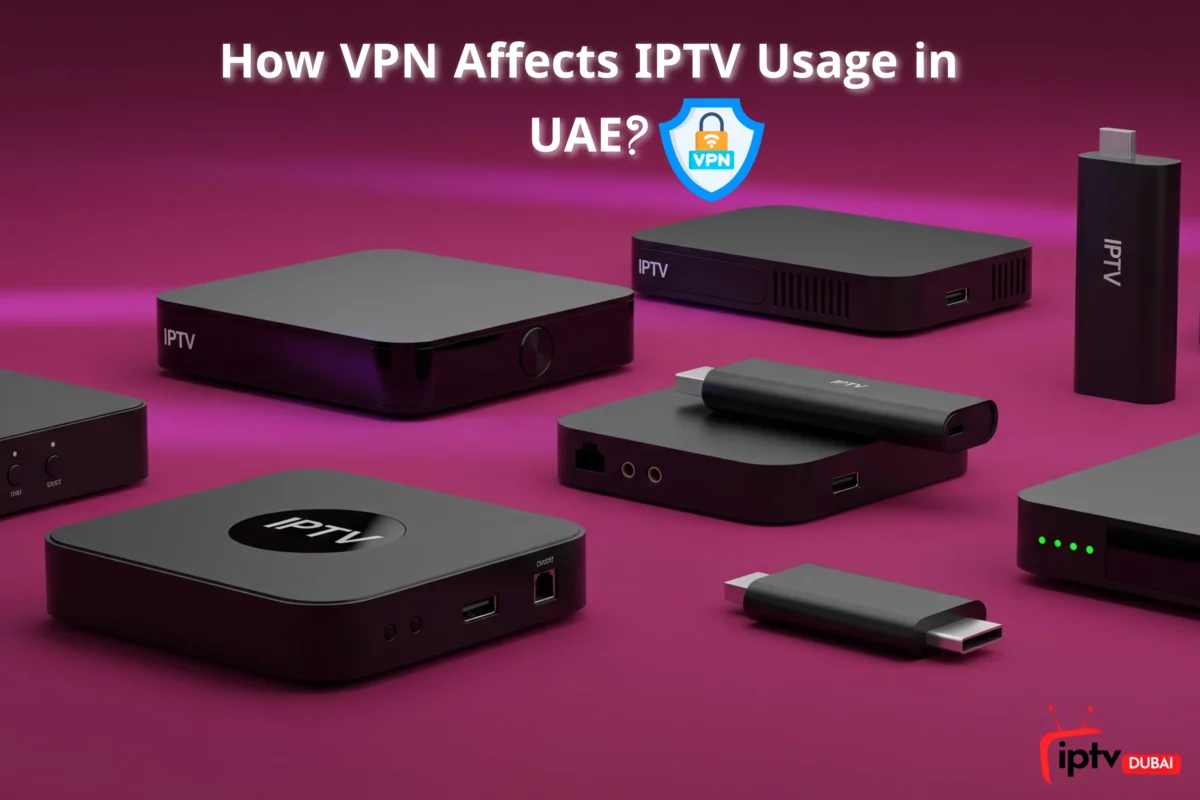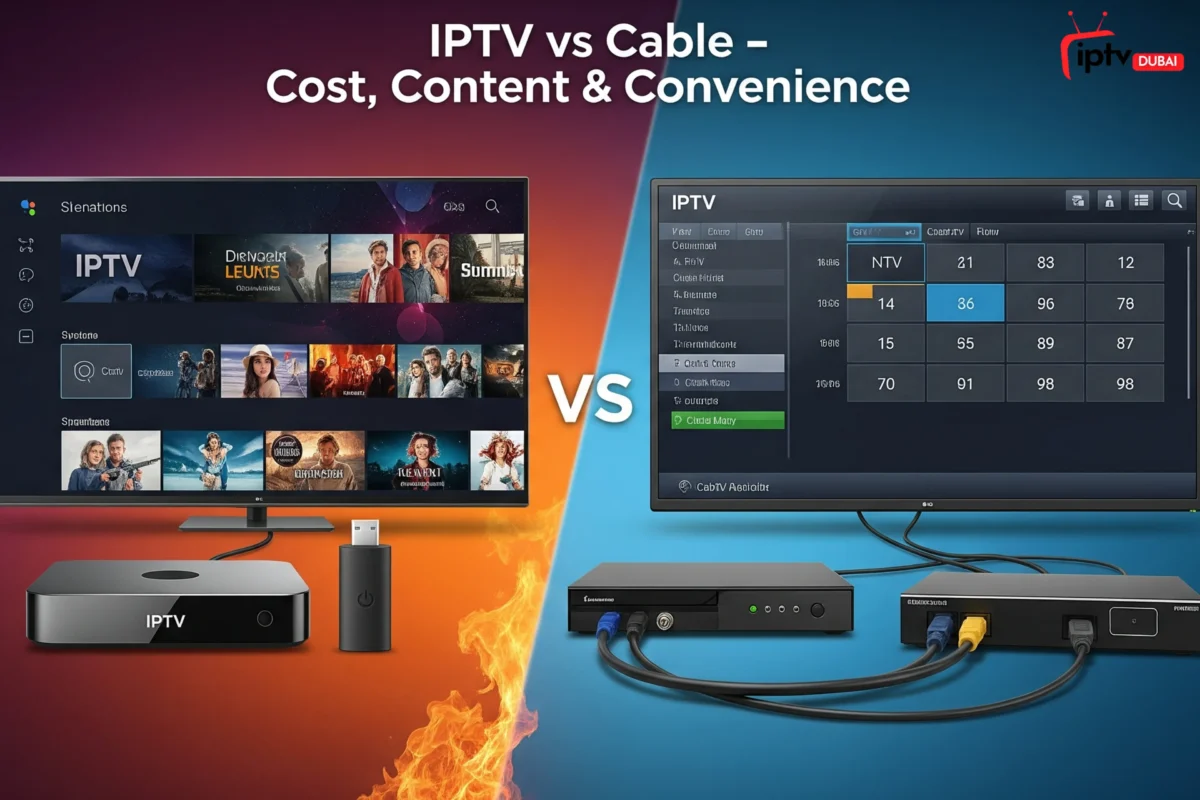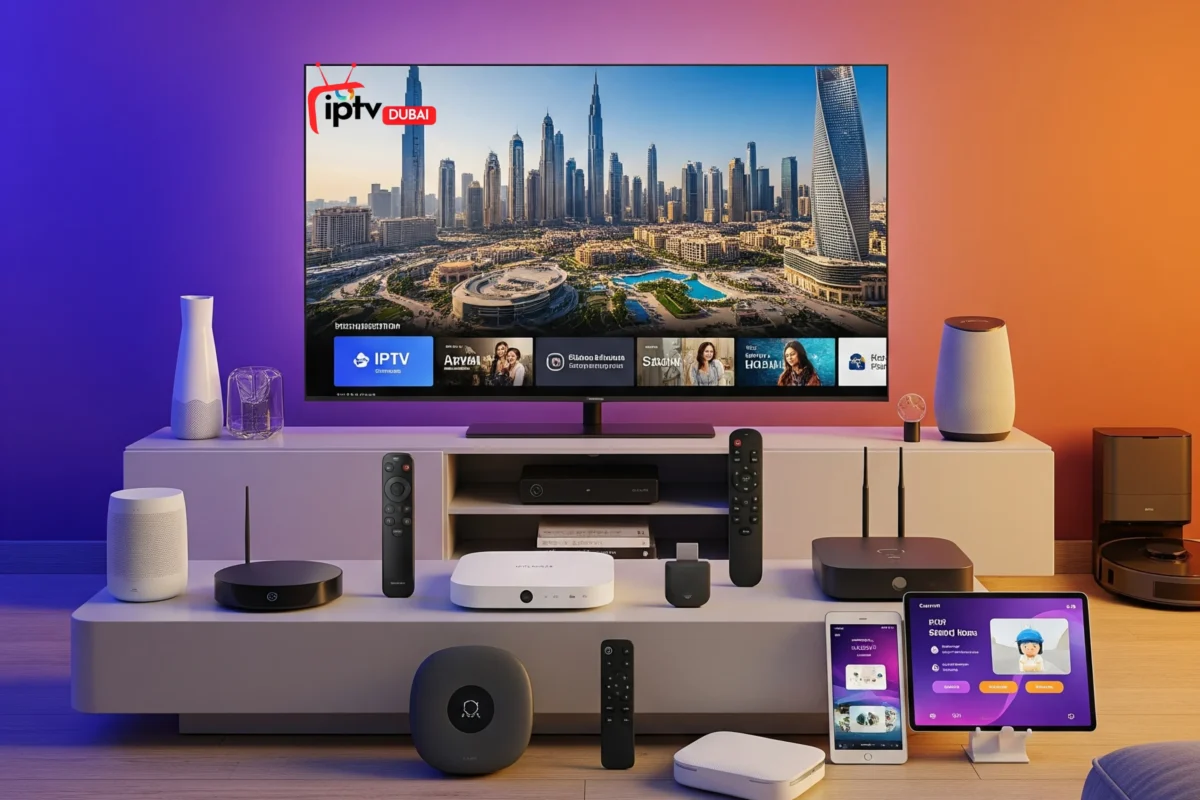Blog
IPTV and UAE Internet Speeds – What You Need
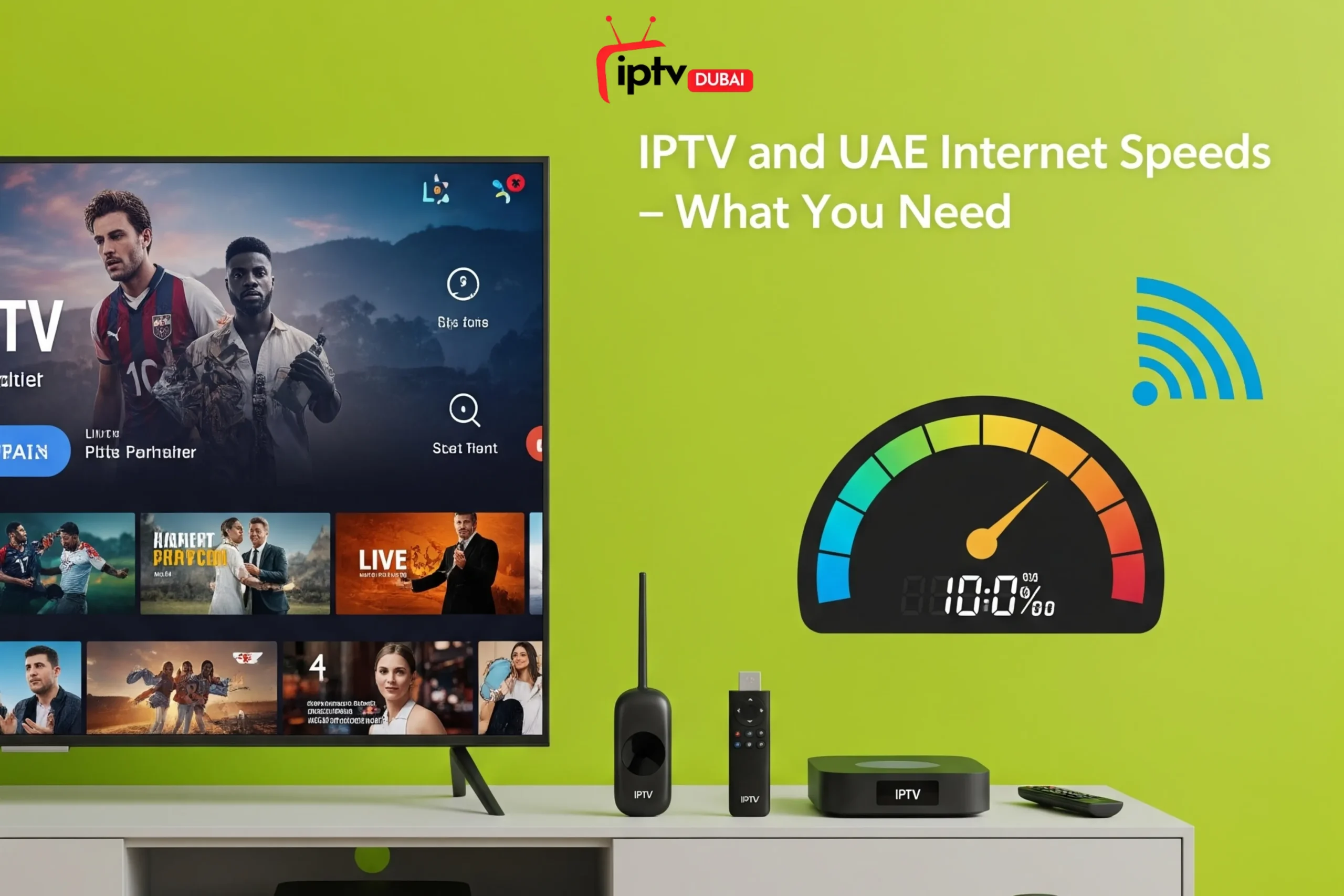
The United Arab Emirates has emerged as a digital hub in the Middle East, with residents increasingly turning to Internet Protocol Television (IPTV) for their entertainment needs. As traditional cable TV gives way to streaming technology, understanding the relationship between IPTV performance and internet speeds becomes crucial for UAE residents seeking optimal viewing experiences. This comprehensive guide explores everything you need to know about IPTV requirements, benefits, and challenges specific to the UAE market.
Understanding IPTV
This section provides a comprehensive introduction to IPTV technology, explaining its fundamental concepts and growing popularity in the UAE market. We’ll explore what IPTV is, how it differs from traditional broadcasting methods, and why it has become the preferred choice for many UAE residents seeking flexible entertainment solutions.
Definition and Basics of IPTV
Internet Protocol Television (IPTV) is a revolutionary technology that delivers television content through internet protocols rather than traditional broadcast methods. Unlike satellite TV or cable TV systems, IPTV uses your internet connection to stream live TV, on-demand content, and interactive services directly to your devices. This streaming technology converts television signals into data packets that travel through your Wi-Fi network to compatible devices such as smart TVs, smartphones, tablets, and set-top boxes.
IPTV operates on three main service models: Live TV (real-time broadcasting), Video on Demand (VOD), and Time-Shifted TV (catch-up services). Users can access thousands of channels, TV shows, movies, and sports content through IPTV players or dedicated applications installed on their devices.
How IPTV Differs from Traditional Cable
The fundamental difference between IPTV and traditional cable TV lies in the delivery method and user experience. While cable TV relies on coaxial cables and satellite TV uses satellite signals, IPTV leverages internet connectivity to deliver content. This technology offers several advantages:
Content Delivery: Traditional cable provides a fixed channel lineup with scheduled programming, whereas IPTV offers flexible content consumption with pause, rewind, and fast-forward capabilities.
Device Compatibility: Unlike cable TV, which requires specific set-top boxes, IPTV works across multiple platforms, including Android devices, smart TVs, smartphones, and tablets, providing seamless compatibility across your household devices.
Interactive Features: IPTV enables two-way communication, allowing users to interact with content, access program guides, and customize their viewing experience.
Quality Options: While traditional cable often limits resolution options, IPTV can deliver content in various qualities from Standard Definition to 4K, depending on your internet speed and device capabilities.
Popularity of IPTV in the UAE
The UAE’s tech-savvy population and robust internet infrastructure have contributed to IPTV’s rapid adoption. Dubai and other emirates boast some of the world’s fastest internet speeds, making them ideal markets for streaming services. The diverse expat community, comprising over 80% of the population, drives demand for international channels and content from their home countries.
Several factors contribute to IPTV’s popularity in the UAE:
- High-speed internet availability across urban areas
- Multilingual content requirements of the diverse population
- Cost-effectiveness compared to premium cable packages
- Flexibility to access content on multiple devices
- Growing smartphone and smart TV penetration
Technical Requirements for IPTV
Understanding the technical specifications and infrastructure requirements is crucial for optimal IPTV performance. This section covers internet speed requirements, device compatibility, and the importance of robust network infrastructure in ensuring seamless streaming experiences for UAE users.
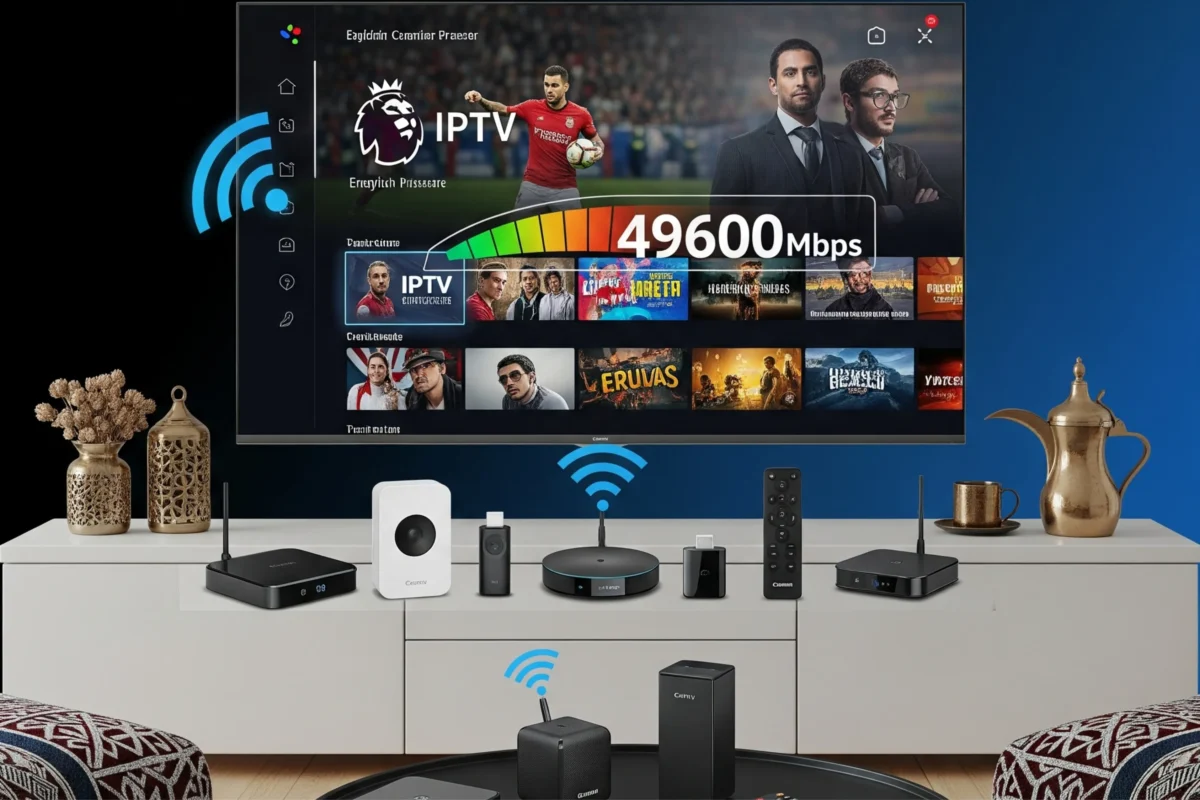
Recommended Internet Speeds for IPTV
Internet speed is the cornerstone of quality IPTV streaming. The UAE’s excellent internet infrastructure supports various streaming qualities, but understanding minimum requirements ensures optimal performance:
Standard Definition (SD): Requires minimum 3-5 Mbps for smooth streaming
High Definition (HD): Needs 8-10 Mbps for consistent quality
4K Ultra HD: Demands 25-35 Mbps for a premium viewing experience
Multiple Device Streaming: Add 5-10 Mbps per additional simultaneous stream
For UAE households with multiple users streaming simultaneously, a minimum of 50 Mbps is recommended. Major internet service providers in Dubai and other emirates typically offer packages exceeding these requirements, ensuring compatibility with IPTV services.
Compatible Devices and Setups
IPTV’s versatility shines through its extensive device compatibility. Users can enjoy content across various platforms:
Smart TVs: Modern smart TVs come with built-in IPTV players and apps, offering the most straightforward setup experience.
Set-top Boxes: Dedicated IPTV boxes provide robust performance and often include advanced features like recording capabilities.
Mobile Devices: Android smartphones and tablets offer portable viewing options with dedicated IPTV applications.
Streaming Devices: Popular options include Amazon Fire TV Stick, Apple TV, and Android TV boxes that transform regular televisions into smart streaming devices.
Gaming Consoles: PlayStation and Xbox consoles support various IPTV applications, maximizing existing hardware utility.
Importance of Strong Internet Infrastructure
The UAE’s investment in telecommunications infrastructure directly impacts IPTV performance. Fiber-optic networks across major cities ensure low latency and high bandwidth capacity, essential for streaming. Key infrastructure elements include:
- Fiber-to-the-Home (FTTH) connections providing gigabit speeds
- 5G networks enabling mobile IPTV streaming
- Redundant network paths ensure service reliability
- Content Delivery Networks (CDNs) reduce buffering through local content caching
Benefits of IPTV Over Traditional Cable
IPTV offers numerous advantages over conventional cable television services, making it an attractive option for UAE residents. This section explores the key benefits, including cost savings, enhanced content access, and improved viewing flexibility, that make IPTV the preferred choice for modern entertainment consumption.
Cost-Effectiveness
IPTV presents significant cost advantages over traditional cable TV subscriptions in the UAE. While premium cable packages can cost hundreds of dirhams monthly, IPTV services often provide more content at a fraction of the price. Users eliminate equipment rental fees, installation costs, and long-term contracts associated with cable providers.
The subscription model’s flexibility allows users to choose packages matching their viewing preferences, from basic channel lineups to premium sports and international content bundles. This à la carte approach ensures users pay only for the desired content rather than comprehensive packages with unwanted channels.
Access to International and Premium Channels
The UAE’s multicultural population benefits enormously from IPTV’s international content accessibility. Traditional cable TV often limits international channels due to licensing restrictions and bandwidth constraints. IPTV overcomes these limitations by offering:
- Global Channel Access: Content from Europe, Asia, the Americas, and Africa
- Premium Sports Coverage: International leagues and tournaments are often unavailable on local cable
- Native Language Programming: Content in Arabic, Hindi, Urdu, Filipino, and other languages spoken by UAE residents
- Specialized Content: Niche channels covering specific interests, hobbies, and professional topics
On-Demand Content and Flexibility
IPTV transforms television consumption from scheduled viewing to on-demand entertainment. Users can access vast libraries of TV shows, movies, documentaries, and sports content whenever convenient. This flexibility particularly appeals to the UAE’s busy professional population, who may not align with traditional broadcasting schedules.
Key flexibility features include:
- Time-shifting capabilities allow pause, rewind, and fast-forward
- Multi-device synchronization enabling content continuation across devices
- Personalized recommendations based on viewing history
- Offline viewing options for downloaded content during travel
Challenges of Using IPTV in the UAE
While IPTV offers numerous benefits, users in the UAE may encounter specific challenges that need to be addressed for optimal service experience. This section identifies common issues including legal considerations, technical problems, and service quality concerns that users should be aware of when adopting IPTV services.
Legal Considerations and Compliance
The UAE maintains strict regulations regarding media content and broadcasting services. Users must navigate legal considerations when selecting IPTV providers to ensure compliance with local laws. The Telecommunications and Digital Government Regulatory Authority (TDRA) oversees broadcasting regulations, and users should verify service legitimacy.
Legal IPTV services typically:
- Hold proper licensing for content distribution
- Comply with UAE censorship and content guidelines
- Provide transparent terms of service and privacy policies
- Offer customer support and dispute resolution mechanisms
Common Technical Issues like Buffering
Despite the UAE’s excellent internet infrastructure, IPTV users may encounter technical challenges:
Buffering Issues: Often caused by network congestion during peak hours, inadequate internet speeds, or server overload. This problem particularly affects users during popular sports events or prime-time viewing.
Connection Stability: Wi-Fi interference, router limitations, or ISP throttling can cause intermittent disconnections affecting streaming quality.
Device Performance: Older devices may struggle with high-definition content or multiple simultaneous streams, leading to performance degradation.
Geographic Restrictions: Some content may be geo-blocked, limiting access to specific channels or programs.
Differentiating Legitimate vs. Illegitimate Services
The IPTV market includes both legitimate and questionable service providers. Users must exercise caution to avoid illegal services that may pose security risks or legal consequences. Red flags for illegitimate services include:
- Extremely low pricing for premium content
- Lack of proper customer support or contact information
- No clear terms of service or privacy policies
- Requests for unusual payment methods
- Poor service reliability and frequent outages
Solutions for Optimal IPTV Experience
To maximize IPTV performance and overcome common challenges, users need practical solutions and best practices. This section provides actionable guidance on selecting reliable providers, optimizing network connections, and implementing tools that enhance streaming quality and reliability for UAE users.
Selecting Reliable Service Providers
Choosing reputable IPTV providers ensures service quality, legal compliance, and customer support. Reliable providers typically offer:
Service Guarantees: Uptime commitments and service level agreements
Technical Support: 24/7 customer assistance and troubleshooting
Content Licensing: Proper authorization for distributed content
Regular Updates: Consistent service improvements and feature additions
Transparent Pricing: Clear subscription terms without hidden fees
Research provider reputation through user reviews, industry certifications, and service history before committing to subscriptions.
Role and Benefits of Using VPNs
Virtual Private Networks (VPNs) can enhance IPTV experiences by addressing geographic restrictions and improving connection stability. However, users must ensure VPN usage complies with UAE regulations and service provider terms.
VPN benefits for IPTV include:
- Geographic Restriction Bypass: Access to region-locked content
- Enhanced Privacy: Encrypted connections protect viewing habits
- ISP Throttling Prevention: Avoiding speed limitations on streaming traffic
- Server Optimization: Connecting to servers optimized for streaming performance
Ensuring a Stable Internet Connection
Optimizing internet connectivity maximizes IPTV performance:
Wired Connections: Ethernet connections provide more stable performance than Wi-Fi for stationary devices like smart TVs and set-top boxes.
Router Optimization: Position routers centrally, update firmware regularly, and use appropriate frequency bands (5GHz for streaming devices).
Bandwidth Management: Prioritize streaming traffic through Quality of Service (QoS) settings and limit background applications consuming bandwidth.
Network Monitoring: Regularly test internet speeds and monitor network performance to identify potential issues.
The Future of IPTV in the UAE
The IPTV landscape in the UAE continues evolving rapidly, driven by technological innovations and changing consumer preferences. This section examines emerging trends, market growth projections, and technological developments that will shape the future of IPTV services in the region.
Trends and Market Growth
The UAE’s IPTV market continues expanding rapidly, driven by technological advancements and changing consumer preferences. Market analysts project significant growth in streaming subscriptions as traditional cable TV adoption declines. Key trends shaping the future include:
5G Integration: Ultra-fast mobile networks enabling seamless mobile IPTV streaming
AI-Powered Recommendations: Machine learning algorithms provide personalized content suggestions
Interactive Content: Enhanced viewer engagement through interactive programming and social features
Cloud-Based Services: Reduced reliance on local hardware through cloud-based IPTV solutions
Impact of the Expat Community
The UAE’s large expatriate population significantly influences IPTV service development. Service providers increasingly cater to diverse cultural preferences by offering:
- Multilingual user interfaces and customer support
- Region-specific content packages
- Cultural and religious programming
- International sports coverage matching expat interests
This demographic diversity drives innovation in content curation and service customization, positioning the UAE as a leading IPTV market in the region.
Innovations in IPTV Technology
Emerging technologies promise to revolutionize IPTV experiences:
Augmented Reality (AR) Integration: Enhanced viewing experiences with additional information overlays
Voice Control: Smart assistant integration for hands-free navigation
Advanced Compression: Improved video compression reduces bandwidth requirements while maintaining quality
Edge Computing: Localized content processing, reducing latency and improving performance
Conclusion
IPTV represents the future of television entertainment in the UAE, offering unprecedented flexibility, content variety, and cost-effectiveness compared to traditional cable TV. Success with IPTV depends on understanding technical requirements, selecting legitimate service providers, and optimizing internet connectivity for optimal performance.
The UAE’s robust internet infrastructure and diverse population create ideal conditions for IPTV adoption and innovation. As technology continues evolving, IPTV services will become increasingly sophisticated, offering enhanced features and improved user experiences.
Users considering IPTV should prioritize legal compliance, service reliability, and technical compatibility to ensure satisfactory long-term experiences. With proper planning and provider selection, IPTV can transform home entertainment while providing access to global content previously unavailable through traditional broadcasting methods.
FAQs
Q: What internet speed do I need for IPTV in the UAE?
A: For HD streaming, you need at least 8-10 Mbps. For 4K content, 25-35 Mbps is recommended. UAE households with multiple users should consider 50+ Mbps packages for optimal performance.
Q: Are IPTV services legal in the UAE?
A: Yes, legitimate IPTV services with proper licensing are legal. However, users must ensure their chosen provider complies with UAE broadcasting regulations and content guidelines.
Q: Can I use IPTV on multiple devices simultaneously?
A: Most IPTV services support multiple device connections, but simultaneous streams may be limited based on your subscription plan. Each additional stream requires extra bandwidth.
Q: Why does my IPTV buffer frequently?
A: Buffering typically results from insufficient internet speed, network congestion, Wi-Fi interference, or server overload. Check your internet speed and consider upgrading your connection or switching to a wired connection.
Q: What devices are compatible with IPTV in the UAE?
A: IPTV works on smart TVs, Android devices, set-top boxes, smartphones, tablets, gaming consoles, and streaming devices like Fire TV Stick and Apple TV.
Q: How do I choose a reliable IPTV provider?
A: Look for providers with proper licensing, transparent pricing, customer support, service guarantees, and positive user reviews. Avoid services with suspiciously low prices or poor customer service.









